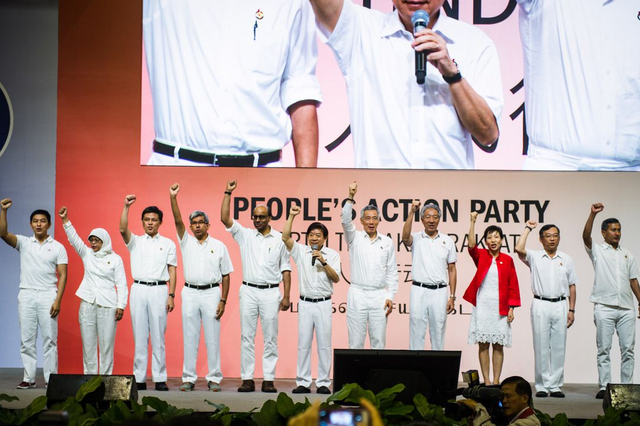
Singaporeans put up with an highly paternalistic/semi-authoritarian style of governance because the PAP has consistently been able to deliver a high standard of living by getting the fundamentals of economic policy right.
I say "put up", because I do not believe that even the partisan pro-PAP crowd believe that the curbing of civil liberties (press and speech freedoms, LGBT rights, the right to protest) has any valuable end in itself. In other words, they consider it a necessary evil and stomach it insofar as stomaching it is easy.
Two ways to think about this is to envision an Opposition-dominated Parliament with a far weakened PAP, where legislation after legislation is systematically passed against their political preferences. If you're a businessperson, think higher taxes and business restrictions. If your pet peeve is in the so-called culture wars, think laws that police social norms and abet and encourage "cancel culture". The second scenario is where PAP starts messing up the fundamentals, leading to high structural unemployment, inflation, economic stagnation, etc.
If we are set on the path of either of these hypothetical trajectories, would the pro-PAP crowd still be so gung-ho about the party's tight control over the media and many aspects of civil life? I don't think so. All that talk of how "East-Asian-style authoritarianism" is preferable to Western liberal democracy would be abandoned very quickly. That story is entirely contingent on a government that delivers the goods for them, which in the absence of, will crumble.
(The same BTW, is true in reverse. Think of how the Western powers in the 90s backed off on the "muh democracy" rhetoric when they realised Singapore was able to achieve growth without political liberalisation)
If I am correct, this has one major implication: Political democratisation is inevitable. As far as I can tell, there are two trends pushing in this direction.
The first: As material standards of living peak and the gains from "catch-up growth" are exhausted, voters will be increasingly discontent with the government's performance. We know that the task of growing a developed economy only gets harder, which means that pressure on the PAP will only intensify. This is not a sign of "failure" on part of the government per se, but just a descriptive reality of how voters tend to judge their political leaders based on relative, rather than absolute terms. (I don't care that Singapore is the richest in the world, am I better off than five years ago?)
The second trend pushing toward democratisation is that voters become less concerned with personal material needs, and more on intangible and abstract goods. This, of course, is common in most developed economies. As people get richer, they care less about material prosperity and more about equality, fairness and environmental value.
Both these trends push our political institutions in the direction of liberalisation. Even if the PAP stays in power, political norms are changing and the agenda cannot be as easily dictated, and is subject to harsher scrutiny.
To a large extent, much of this democratisation is already happening, but informally. The government is far less paternalistic and more consultative as compared to the 80s and 90s. LGBT freedoms are increasingly accepted and their concerns addressed, even if 377A is still on the books. The scope of speech freedoms have dramatically increased (in part thanks to social media platforms).
This is all good news to my progressive friends. Democratisation might come slowly, but it is surely coming. The mistake is in fixating solely on formal legislation while ignoring the tide of informal changes.